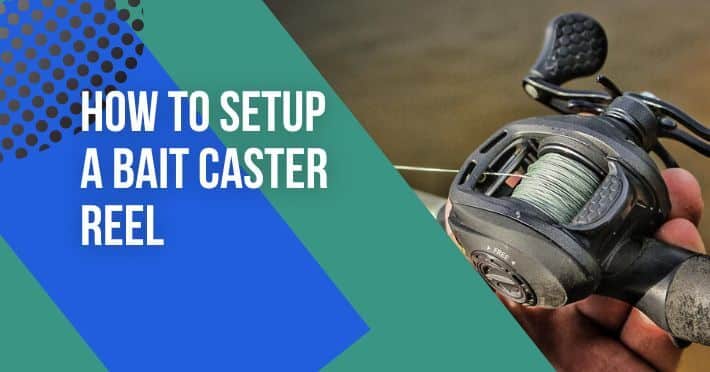Contents
- 1 Are Baitcasters Better Than Spinning Reels
- 2 Advantages of Baitcasting Reels
- 3 Increased Accuracy And Casting Distance
- 4 Greater Control And Sensitivity
- 5 Better Suited For Heavy Lures And Lines
- 6 Easier To Handle And Retrieve Large Fish
- 7 Advantages of Spinning Reels
- 8 Versatility In A Variety Of Fishing Situations
- 9 Ease Of Use For Beginners And Casual Anglers
- 10 Better Suited For Lighter Lures And Lines
- 11 Less Risk Of Line Tangles And Backlashes
- 12 Drawbacks of Baitcasting Reels
- 13 Drawbacks of Spinning Reels
- 14 Conclusion
- 15 Frequently Asked Questions
- 16 Are baitcasting reels more accurate than spinning reels?
- 17 Are spinning reels easier to use than baitcasting reels?
- 18 Are baitcasting reels better for larger fish?
- 19 Can spinning reels handle heavier lines and lures?
- 20 Which type of reel is better for finesse techniques?
- 21 Which type of reel is more versatile?
- 22 Are baitcasting reels more expensive than spinning reels?
- 23 Do I need to use a baitcasting reel for bass fishing?
Fishing reels are an essential part of any angler’s toolkit. They come in various styles, but two of the most common are baitcasting reels and spinning reels. Both have advantages and disadvantages, but the question remains: are baitcasters better than spinning reels? So let’s answer.
Are Baitcasters Better Than Spinning Reels
Baitcasting reels are often favoured by experienced anglers who demand a high level of control and precision. They are designed to cast heavy lures and lines with great accuracy, allowing for precise placement and presentation. These reels require a certain level of skill and practice to use effectively, but once mastered, they offer unmatched performance.
Spinning reels, on the other hand, are generally easier to use and are a popular choice for beginners and casual anglers. They are versatile and can be used in a variety of fishing situations, from light tackle to heavy-duty fishing. Spinning reels are known for their ease of use and ability to handle lighter lures and lines, making them a go-to choice for many anglers.
Choosing the right reel for the fishing situation is important to ensure the best possible results. The type of reel used can have a significant impact on casting accuracy, control, and sensitivity, as well as the ability to handle large fish and heavy lures and lines.
There has been an ongoing debate between baitcast reels and spinning reels, with both sides claiming superiority in different situations. In this article, we will explore the advantages and drawbacks of each type of reel and provide recommendations for when to use each one.
Advantages of Baitcasting Reels
Generally, baitcasting reels offer better performance in situations where casting accuracy and control are crucial. They are also preferred for fishing with heavier lures and lines or when targeting larger fish.
Increased Accuracy And Casting Distance
Baitcasting reels are designed to provide greater casting accuracy and distance compared to spinning reels. This is due to their design, which allows for better control and precision when casting.
Greater Control And Sensitivity
Baitcasting reels offer greater control and sensitivity when retrieving the line. This allows for a better feel of the lure or bait and more precise manipulation of the bait.
Better Suited For Heavy Lures And Lines
Baitcasting reels are designed to handle heavier lures and lines than spinning reels. This makes them the preferred choice for anglers who fish for larger species of fish, such as bass or musky.
Easier To Handle And Retrieve Large Fish
Baitcasting reels are designed to handle larger fish more efficiently than spinning reels. They offer greater leverage and control over the fish, which makes it easier to handle and retrieve them.
Advantages of Spinning Reels
Across-the-board, spinning reels are a versatile and easy-to-use option that is suitable for a wide range of fishing situations. They are an excellent choice for beginners and casual anglers, and are preferred for fishing with lighter lures and lines or when targeting smaller fish.
Versatility In A Variety Of Fishing Situations
Spinning reels are versatile and can be used in a wide range of fishing situations, from light tackle to heavy-duty fishing. They are also suitable for use in different types of water, including freshwater and saltwater.
Ease Of Use For Beginners And Casual Anglers
Spinning reels are generally easier to use than baitcasting reels, making them an ideal choice for beginners and casual anglers who are just starting out. They require less skill and practice to use effectively and are less likely to result in tangles or backlashes.
Better Suited For Lighter Lures And Lines
Spinning reels are designed to handle lighter lures and lines than baitcasting reels, making them the preferred choice for anglers who fish for smaller species of fish, such as trout or panfish.
Less Risk Of Line Tangles And Backlashes
Spinning reels are less likely to result in line tangles or backlashes than baitcasting reels, due to their design which prevents the line from twisting or looping during casting.
Drawbacks of Baitcasting Reels
While baitcasting reels offer superior performance in certain fishing situations, they can be difficult to learn and require more skill and practice to use effectively. They are also more expensive and less versatile than spinning reels, which may not make them the best choice for all anglers.
Steep learning curve: Baitcasting reels require a certain level of skill and practice to use effectively. They can be difficult to learn, especially for beginners, and can result in frequent backlashes and tangles until the angler becomes proficient with them.
Higher cost: Baitcasting reels are generally more expensive than spinning reels, which can be a barrier for some anglers. They also require more maintenance and upkeep, which can add to the overall cost.
Less versatile: Baitcasting reels are designed for use with heavier lures and lines, which limits their versatility compared to spinning reels. They are not as well-suited for finesse techniques or lighter tackle, which can be a disadvantage in certain fishing situations.
Greater risk of line tangles and backlashes: If not used properly, baitcasting reels can result in frequent line tangles and backlashes, which can be frustrating and time-consuming to untangle.
Drawbacks of Spinning Reels
Overall, while spinning reels are generally easier to use and more versatile than baitcasting reels, they have some limitations. They may not be the best choice for situations where casting distance, accuracy, or control are crucial, and may not be able to handle heavier lures and lines as effectively as baitcasting reels.
Less casting distance and accuracy: Spinning reels are generally not as accurate or capable of achieving the same casting distances as baitcasting reels. This can be a disadvantage in situations where precision casting is important.
Less control and sensitivity: Spinning reels are generally not as sensitive as baitcasting reels, which can make it more difficult to feel and manipulate the bait or lure.
Limited use with heavier lures and lines: Spinning reels are not designed to handle heavier lures and lines as effectively as baitcasting reels. This can be a disadvantage when targeting larger fish or using heavier tackle.
Greater risk of line twist: Spinning reels are more prone to line twists, which can result in tangles and decreased casting distance. This can be a disadvantage in situations where the angler is trying to cover a lot of water quickly.
Conclusion
In conclusion, both baitcasting and spinning reels have their advantages and drawbacks, and it is important for anglers to choose the right reel for the fishing situation.
Baitcasting reels offer superior accuracy, control, and the ability to handle heavier lures and lines, but they can be difficult to learn, more expensive, and less versatile. Spinning reels, on the other hand, are generally easier to use, more versatile, and better suited for lighter lures and lines, but may have limitations in terms of casting distance and accuracy.
When choosing a reel, anglers should consider the type of fishing they will be doing, the species of fish they are targeting, and the size of the lures and lines they will be using. They should also take into account their own skill level and experience with different types of reels.
As a personal recommendation, if you are new to fishing or prefer fishing with lighter lures and lines, a spinning reel may be the best choice for you. If you are an experienced angler who requires greater accuracy and control or is targeting larger fish, a baitcasting reel may be the way to go.
Regardless of which type of reel you choose, it is important to practice proper casting techniques and to maintain and care for your equipment to ensure optimal performance and longevity. With the right reel and a little practice, you can enjoy a successful and enjoyable fishing experience.
Frequently Asked Questions
Are baitcasting reels more accurate than spinning reels?
Yes, baitcasting reels are generally more accurate than spinning reels. The design of a baitcasting reel allows for greater control and precision in casting, making them better suited for targeting specific areas or structures.
Are spinning reels easier to use than baitcasting reels?
Yes, spinning reels are generally easier to use than baitcasting reels, especially for beginners. Spinning reels require less skill and practice to use effectively and have fewer issues with backlashes and tangles.
Are baitcasting reels better for larger fish?
Yes, baitcasting reels are generally better for targeting larger fish. They are better suited for heavier lines and lures and offer greater control and power when fighting big fish.
Can spinning reels handle heavier lines and lures?
Spinning reels can handle heavier lines and lures to a certain extent, but they are not as well-suited for a heavy tackle as baitcasting reels. They may struggle with casting heavier lures or fighting large fish on heavier lines.
Which type of reel is better for finesse techniques?
Spinning reels are generally better suited for finesse techniques, such as drop shooting or using small jigs or soft plastics. They offer greater sensitivity and control for these techniques.
Which type of reel is more versatile?
Spinning reels are generally considered more versatile than baitcasting reels. They can handle a wider range of tackle and techniques, making them a good choice for a variety of fishing situations.
Are baitcasting reels more expensive than spinning reels?
Yes, baitcasting reels are generally more expensive than spinning reels. They require more advanced technology and design and can require more maintenance and upkeep, which can add to the overall cost.
Do I need to use a baitcasting reel for bass fishing?
No, you do not necessarily need to use a baitcasting reel for bass fishing. Many anglers prefer to use spinning reels for bass fishing, especially when using finesse techniques or fishing in areas with tight quarters.
